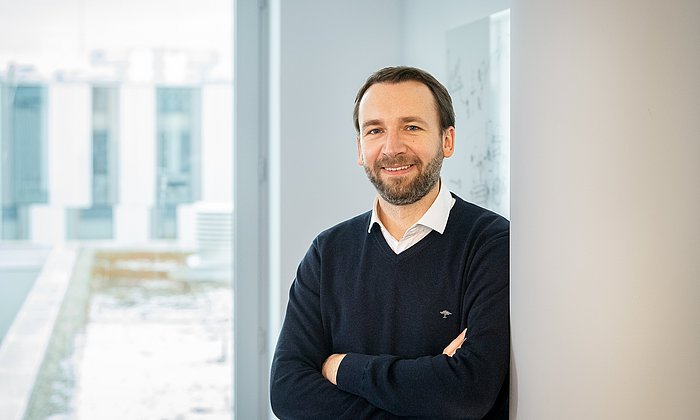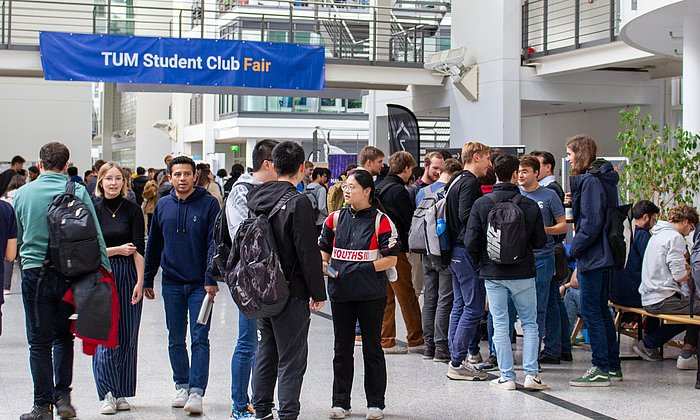Two projects from TUM seminar on responsible AI top the list
Students from TUM and LMU win Digital Future Challenge
AI-based solutions for societal challenges
The fourth edition of the Digital Future Challenge focused on the urgent question of responsible use of AI. The participants sought innovative and practical solutions for nine different use cases from renowned project partners such as IBM, Telekom, PD, and Telefónica. The students first submitted their concepts as a pitch deck to convince the jury.
To accompany the challenge, Sarah Rachut (Managing Director of the TUM Center for Digital Public Services and research associate at the Chair of Law and Security in Digital Transformation), Helene v. Schwichow (research associate at the Assistant Professorship of Policy Analysis), and Markus Siewert (Managing Director of the TUM Think Tank) offered a seminar on responsible AI. Here, students from different disciplines prepared together for the individual stages of the challenge in terms of content and methodology. The teams benefited from the interdisciplinary orientation of their instructors and the range of guest lectures, soft skills workshops, and accompanying events such as a panel discussion.

Four teams make it to the semi-finals, three to the final
Of the eight project teams from the seminar, four made it to the semi-finals in Berlin, where they presented their concepts to the jury – and three of them advanced to the final at the Federal Ministry of Digital and Transport to compete for a place on the podium.
Here, the jury was particularly impressed by the TUM team “EduPin”, which took up the challenge from PD – Berater der öffentlichen Hand and developed an innovative solution for child-friendly, data-based transportation planning. The students designed a digital pin to make the journey to school safer. It can detect traffic signs, playfully help children to move safely and responsibly in traffic, and warn them of dangers in several languages.
Second place went to “AI Allies” from LMU, who dealt with inclusion and accessibility in Telefónica’s customer support: their chatbot Aura Ally can be operated using various input functions and is able to communicate with people seeking advice in different languages, including sign language. In this way, it can help to strengthen equal opportunities and improve the interaction between humans and machines.
Fourth place went to TUM’s “Power Balance” team, which took on a use case from the Honda Research Institute EU. The team developed a comprehensive concept for distribution-oriented AI energy management that considers various dimensions of fairness. A points system rewards citizens for conscious energy consumption and incentivizes customers to consume electricity when it is being produced.

Success through interdisciplinary cooperation
Sixty percent Munich teams in the final of the competition – the potential of collaboration across TUM Schools and the universities in the Munich ecosystem couldn't be more evident: In the “Responsible AI” seminar and the project teams, Bachelor’s and Master’s students from the TUM School of Computation, Information and Technology, the TUM School of Social Sciences & Technology and the TUM School of Management, as well as students from LMU's Master’s program in Human-Computer Interaction, worked closely together to contribute their respective expertise to joint approaches to solving real-world problems. Thanks to the cooperation with the partner organizations, the participants could also exchange ideas with numerous experts. In this way, the students not only shape their own profiles and networks, but also innovations that benefit society as a whole.
- Digital Future Challenge: The Digital Future Challenge is a joint project of the Deloitte Foundation and Initiative D21 to shed light on the responsibility of companies in and through the digital transformation.
- TUM Center for Digital Public Services: As a legal research center, the TUM CDPS accompanies the digital transformation. On April 18 and 19, it will host the 18th For..Net Symposium, at which the “EduPin” team will present its prototype.
- TUM Think Tank: At the TUM Think Tank, researchers and students work together with partners from civil society, business, politics, and administration on responsible and human-centered technologies.
- Project “sustAInability”: Within the project sustAInability, jointly run by TUM and Munich University of Applied Sciences, students can also work on current challenges in the field of “AI and sustainability” every semester.
Technical University of Munich
- Konstantin Götschel – TUM Center for Study and Teaching
- goetschel@zv.tum.de


